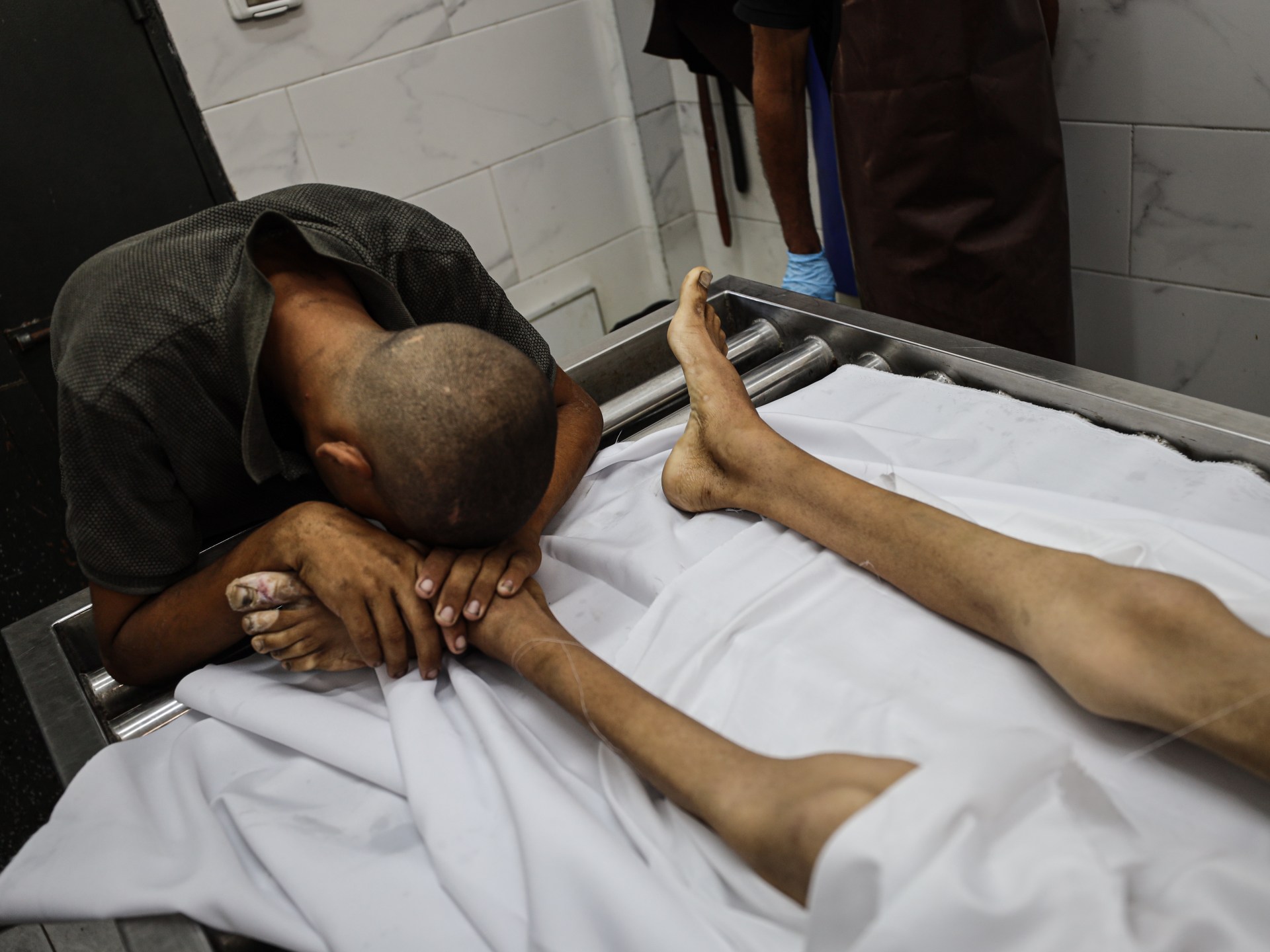According to medical officials and family members, a Palestinian teenager who has never had any prior medical conditions has died in Gaza after being taken into the besieged enclave as a result of Israel’s ongoing blockade of aid.
Atef Abu Khater, 17, passed away on Saturday, according to a source at Gaza City’s al-Shifa Hospital.
His family estimated that his weight, which should be considered the same as a nine-year-old child, had dropped from 70 to 55 pounds when he passed away.
“His family and others who knew him have told us that he once was a regional sports champion.” He eventually lost a lot of weight, developed acute malnourishment, and passed away, according to Hani Mahmoud of Al Jazeera from Gaza City.
“He was just one of Gaza’s many severe malnutrition cases,” he said.
Abu Khater’s family members were seen saying goodbye in video that was shared online and verified by Al Jazeera. The boy’s emaciated body was visible in an open white body bag with his face facing the camera in it.
He appeared gaunt, and his cheekbones protruded without any fat. Due to malnourishment, a relative could be seen running his finger along each bone on the boy’s ribcage.
Before he passed away, Abu Khater was declared by journalist Wisam Shabat, who posted the video on his Instagram account, in a critical condition with severe complications after receiving no food or medical care.
According to the director of al-Shifa Hospital, the 17-year-old is one of at least seven Palestinians who have passed away from malnutrition in Gaza over the past 24 hours.
According to the most recent data from the Gaza Health Ministry, at least 169 Palestinians have perished in the territory as a result of starvation and malnutrition since Israel’s war started in October 2023.
Palestinians are now starving and unable to feed their families, according to UN and other humanitarian organizations, despite Israeli restrictions on humanitarian aid deliveries, which have been partially lifted recently.
Israel has stated that it is increasing aid deliveries to Palestinians, including via airdrops, as a result of the growing international condemnation of the crisis.
However, humanitarian organizations have called for Israel to open all border crossings into Gaza to allow the flow of aid freely between Palestinians in need. They claim airdrops are dangerous and ineffective.
UNRWA’s head of UNRWA, Philippe Lazzarini, stated on Saturday that “the deliberate attempts to replace” UN aid systems with a contentious, US and Israeli-backed group called the GHF have largely contributed to the man-made famine in Gaza.
Palestinians who attempt to access GHF-run distribution centers in Gaza have been regularly shot by Israeli forces, and more than 1,300 aid seekers have been killed since the organization’s operation began in May have been reported this week by the UN.
In what he called “a deliberate measure to collectively pressure and punish Palestinians for living in Gaza,” Lazzarini also accused Israel of actively preventing the UN and other humanitarian organizations from providing life-saving aid to Palestinians.
The UNRWA head said in a post on X that “there is no time to waste,” and that a political decision must be made to make the crossings completely open.
Children “dealing slowly”
In Gaza, thousands of Palestinian families are searching for food and other urgently needed supplies in the interim.
According to Al Jazeera’s Hind Khoudary, who was reporting from Deir el-Balah in central Gaza on Saturday, many people, including children, are “dying slowly due to forced starvation by Israel.”
Misk al-Madhoun, a five-year-old malnourished child whose parents are unable to provide for her, is one of them. They claim that every day, she slowly passes away, according to Khoudary, adding that parents are giving their kids everything they can.
We’ve met mothers who, she said, don’t have other options but instead give their babies water instead of milk.
Palestinian parents are also still frequently seen searching for hot meal locations or distribution points by walking very far in the heat. They run the risk of being killed, hurt, or returned home empty-handed, even if they visit the GHF sites.
The “worst-case scenario of famine” was emerging in Gaza on Tuesday, according to the Integrated Food Security Phase Classification (IPC), a global hunger monitoring system.
According to the most recent data, famine thresholds have been exceeded for the majority of the Gaza Strip’s food consumption and for Gaza City’s acute malnourishment, according to a report.
Source: Aljazeera

Leave a Reply